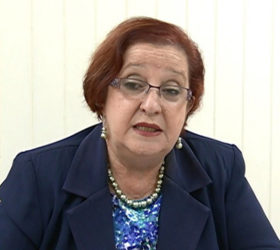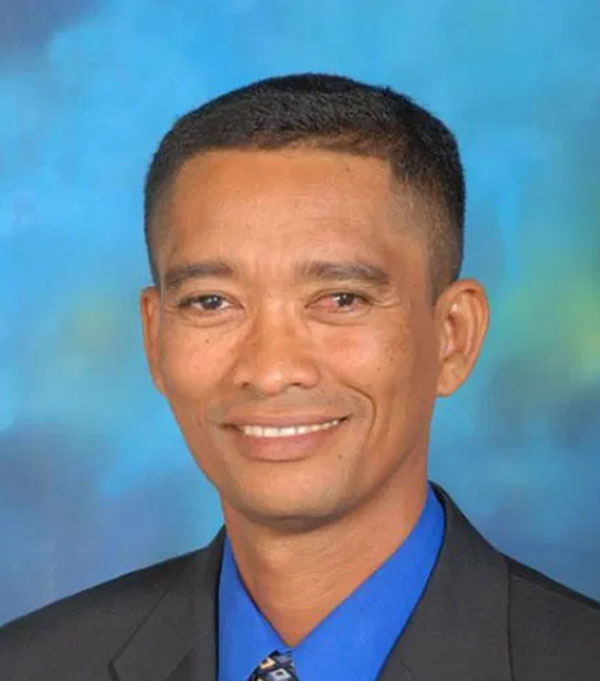With government looking to strengthen and improve Guyana’s anti-corruption framework, Chairman of the Private Sector Com-mission Paul Cheong told the second instalment of the Ministry of Parliamentary Affairs and Governance’s accountability and transparency workshop that graft undermines businesses and threatens inves-tors’ confidence in the country.
“No country can afford to allow corruption to take root in society, not in the public or private sector. Once corruption invades or permeates a society it becomes insidious and undermines businesses, it threatens security, it threatens and drives away investors altogether. It ultimately criminalizes every activity whether business, the public service, professionals [and] even in sport. Eventually, it will bring down any society or organization or persons involved,” Cheong yesterday told the gathering of the private sector and civil society representatives.

This instalment of the Ministry of Parliamentary Affairs and Governance’s anti-corruption framework workshop focused on transparency and accountability in government, private sector and civil society.
In his address as Chair of the Private Sector Com-mission (PSC), Cheong pointed to a number of countries where investors’ confidence was rocked and leaders criminally charged as a result of corrupt practices. He reminded that Guyana is a signatory to the Inter-American Con-vention against Corruption with the objective of exposing, punishing and eradicating corruption. On that note, Cheong said that the PSC recognizes the efforts of government through its regulatory and oversight anti-corruption bodies to implement measures to prevent, detect, punish and eradicate acts of corruption.
“While we support Guyana’s anti-corruption framework, we believe that more can be done to enhance transparency and accountability. The private sector is in a unique position to promote this. In fact, public-private partnership to promote transparency is key to the effective delivery of public services and building a climate that supports private sector development. Evi-dence has shown that the lack of transparency and accountability can affect a country’s productivity and economic growth,” Cheong said.
He highlighted that Article 12 of the United Nations Convention against Corruption directly addresses the importance of engaging the private sector in the fight against corruption noting that the convention encourages the government to partner with private entities to help develop corporate anti-corruption safeguards including conflict checks, disclosure obligations and accounting and auditing standards. The PSC Head lauded the government for taking the steps to educate the private sector on ways to enhance transparency and accountability.
“…anti-corruption efforts are needed so that we can invest effectively in order of priorities. The billions of dollars government and businesses are investing to revitalize the economy is at the risk of being diluted if (it becomes) fertile grounds for corruption and self-dealing.
“To counter corruption effectively we must combat money laundering, illicit traffic and all forms of criminal activities that fuel corrupt activities and not allow criminal actors to shelter their proceeds of these illicit activities. There is a strong correlation between good governance, transparency and accountability to economic development, efficiency and profitability,” Cheong related.
Pledged
He also pledged the PSC’s support as a partner in the anti-corruption fight, adding that a holistic effort is needed to ensure transparency and accountability.
A number of civil society and private sector bodies will be involved in the two-day workshop which concludes today. The civil society organisations include the Guyana Bar Association, Amerindian People’s Association, Blossom Inc, National Toshaos’ Council, Guyana Women Miners Organization and the International Decade for People of African Descent. The Women Miners Organization declined the invitation to make a presentation.
The workshop explores topics such as anti-corruption laws and oversight bodies, Company Laws, accounting and auditing standards in the private sector, anti-money laundering and combating the financing of terrorism, code of banking practice and laws governing civil society organizations.
During her address in the opening session on transparency and accountability, Minister of Parliamentary Affairs and Governance Gail Teixeira walked the attendees through the country’s anti-corruption framework. She said that the framework deals mostly with government and its agencies.
“…why we’re having this today with the three sectors – government, private sector and civil society – is because I believe there’s a misconception that accountability and transparency relate only to government. And I think we have to start changing … using that and you recognize we’re all accountable, whether myself as a minister and a member of parliament, I’m accountable as a public officer.
“My integrity is important. What I do is important on behalf of our people, and so it must be that public officers and executives are accountable. The legislature’s accountable, the judiciary is accountable and so, what we have to recognize (is) that transparency and accountability relate to the entire society,” she said.
She added that government is also cognizant of the need for the integration of online communication as a means of promoting transparency and accountability.
“…there have been a number of interventions using technology including the social media platforms, Facebook’s etc by the government to try to ensure the public is better informed. It is a process that has to be developed as we go along and where we also have to deal with the other platform and that is connectivity and ensuring that connectivity improves across the country so that every citizen whether they live in Eteringbang or whether they live in Aishalton or Shulinab or Tassawini that they can also see and have access to this information. And that is a process that is ongoing in terms of creating the connectivity and the equipment that needs to do that.
“So that’s a process that we’re working on because this is one in which people get information. Information is power and people make decisions based on information and if they’re given accurate information or evidence-based or fact-based information, they are more able to make decisions with regards to their lives, and what happens,” she related.
She added that citizen empowerment and involvement are critical components of transparency and accountability. The Minister also acknowledged that there are a number of old laws governing civil society and as such, she is hoping that the workshop would be able to brainstorm suggestions on how to update them.





